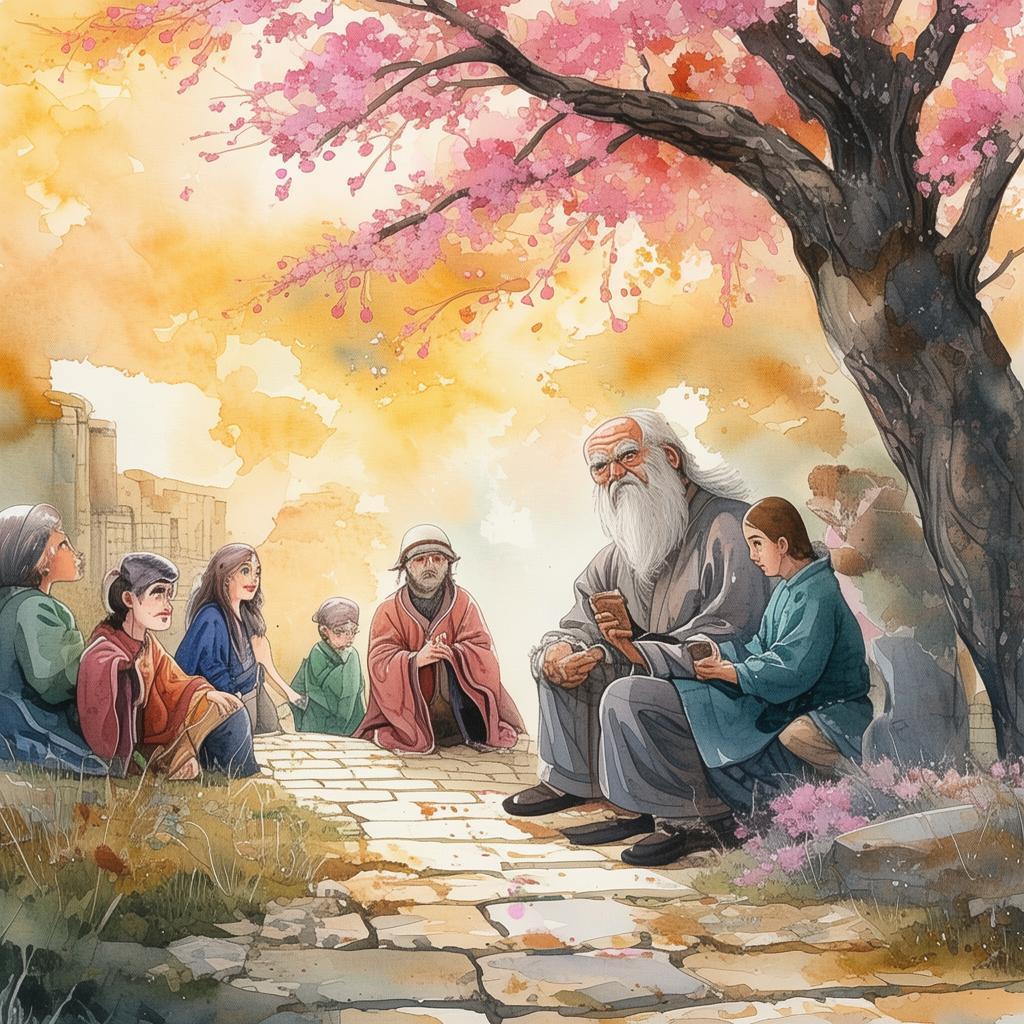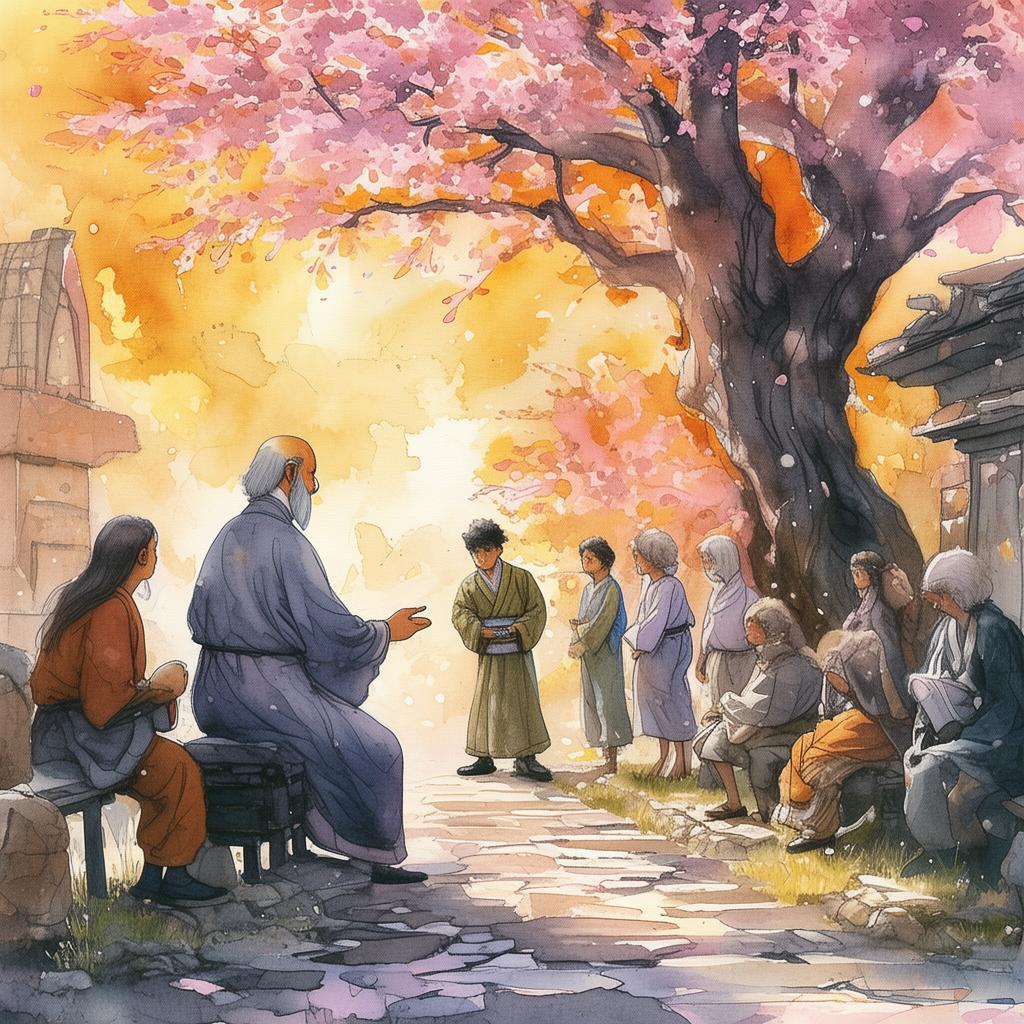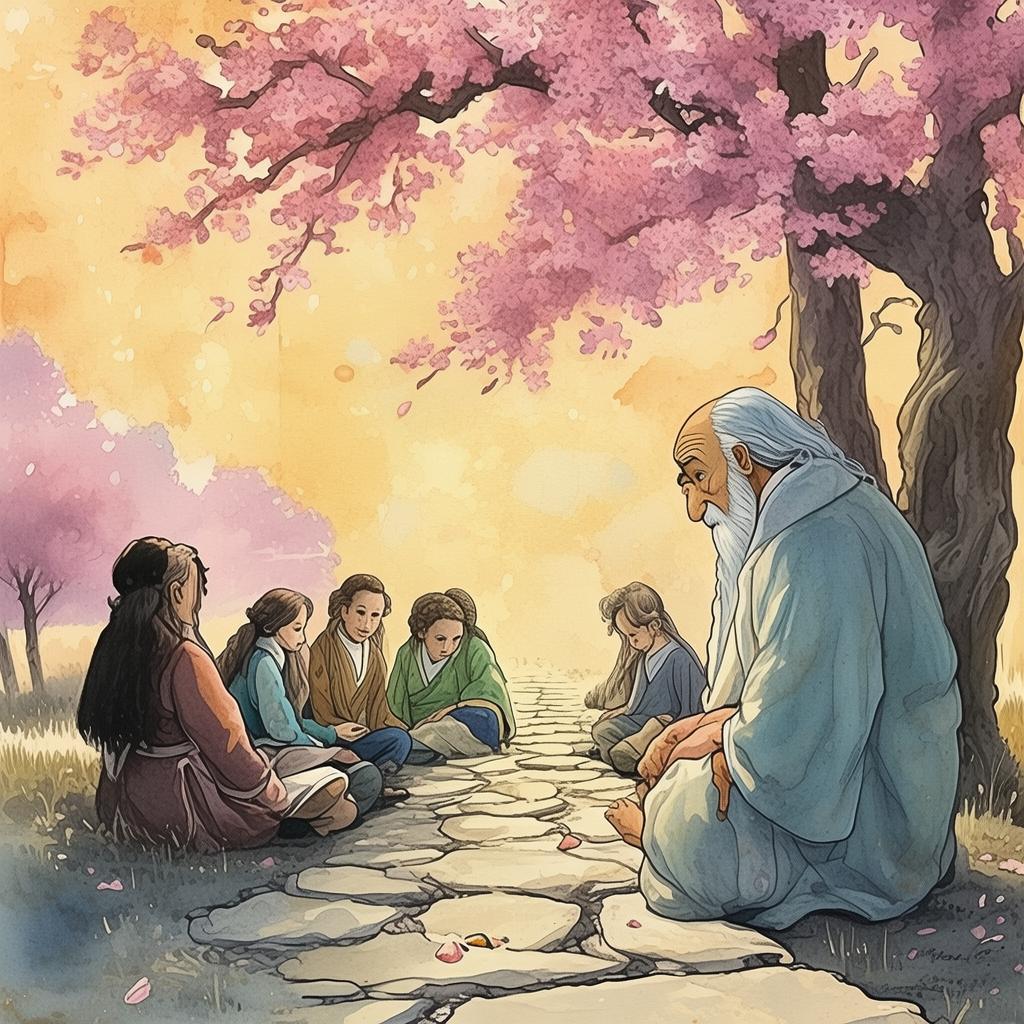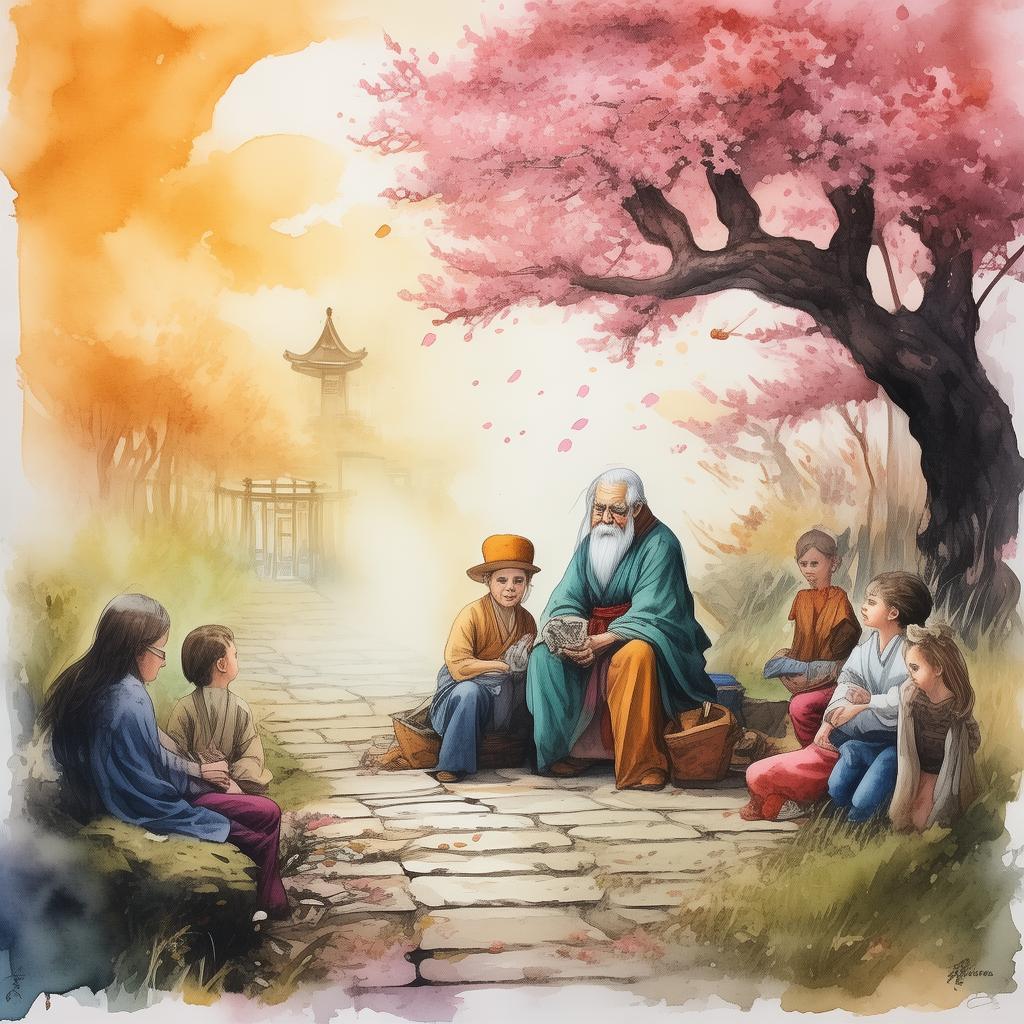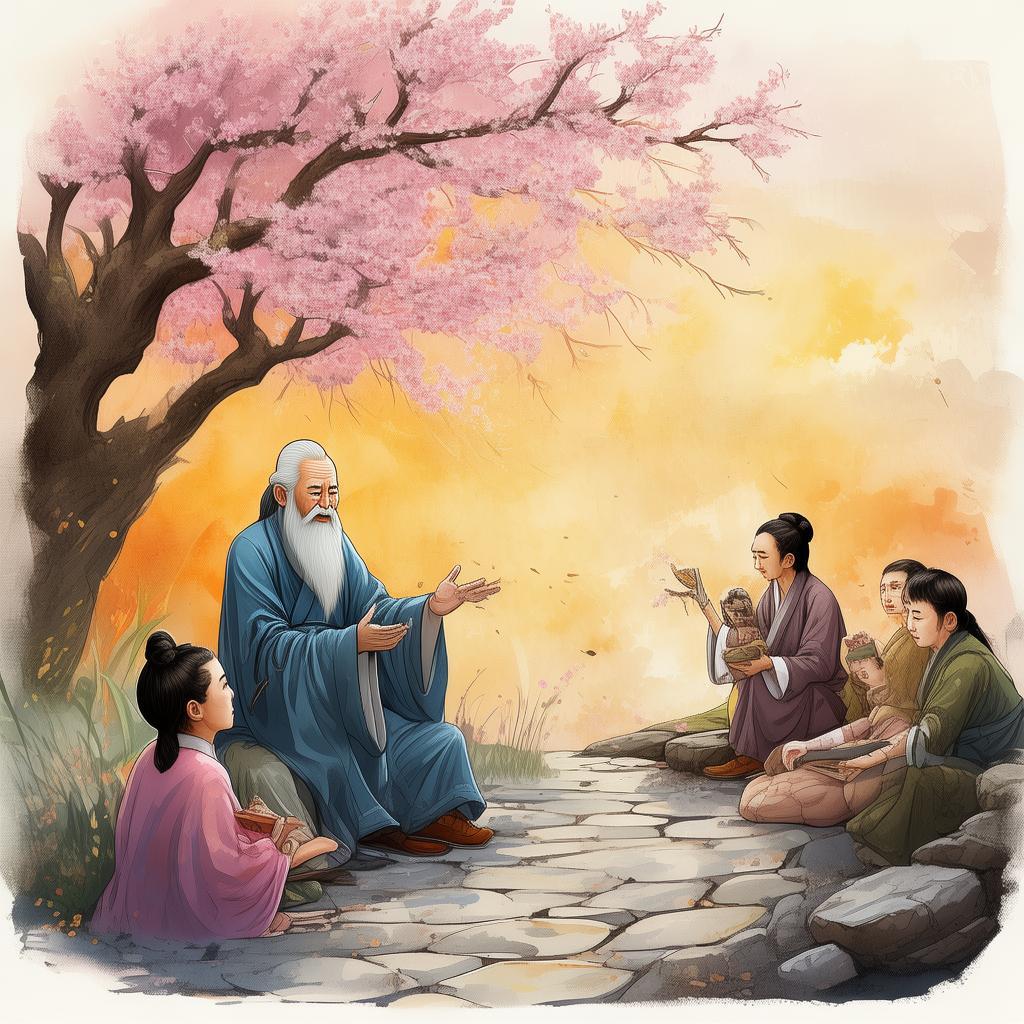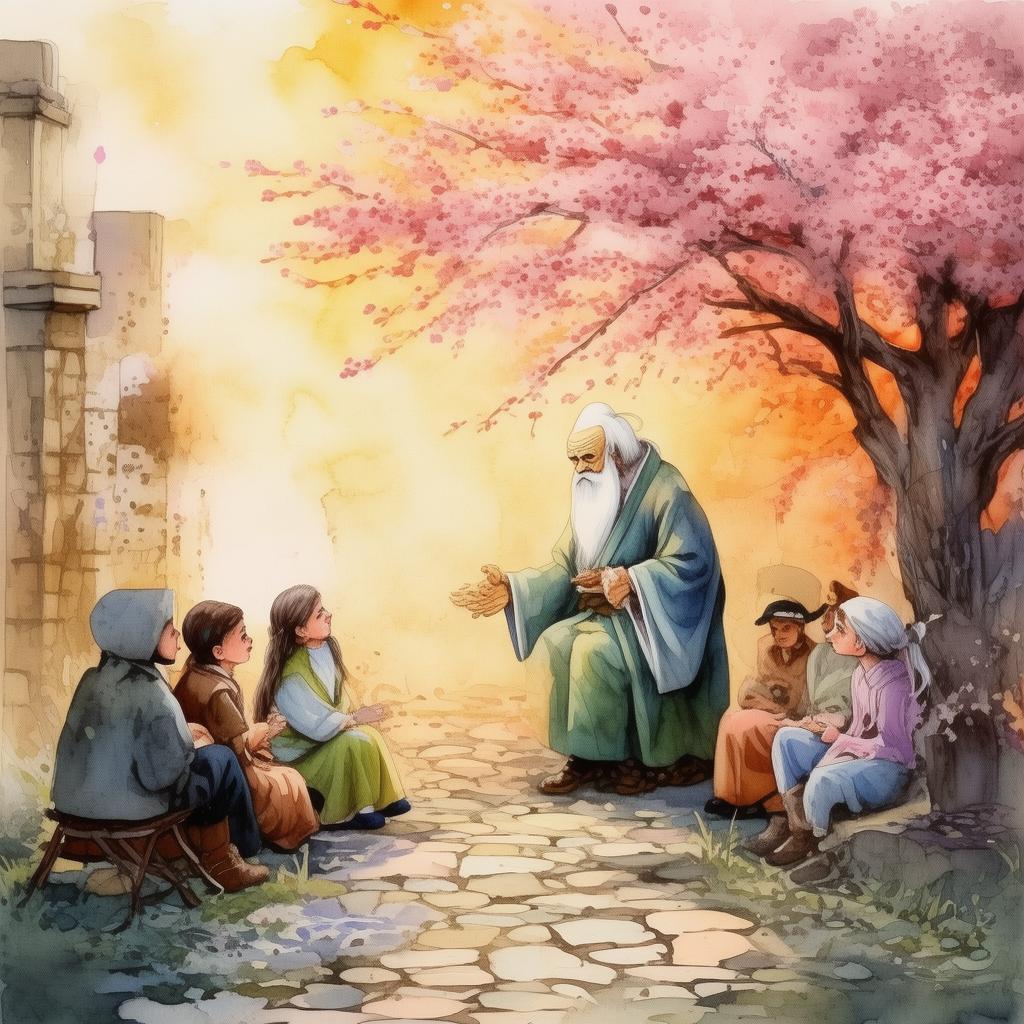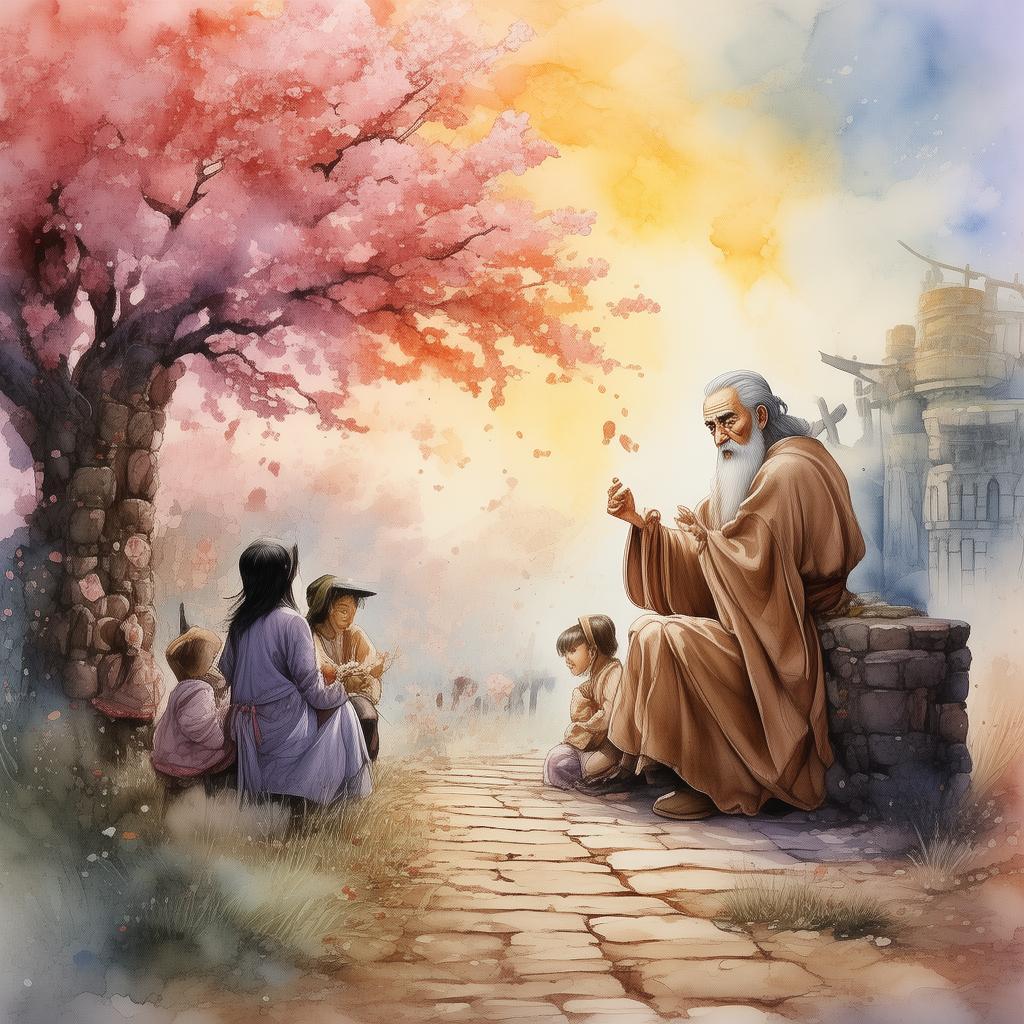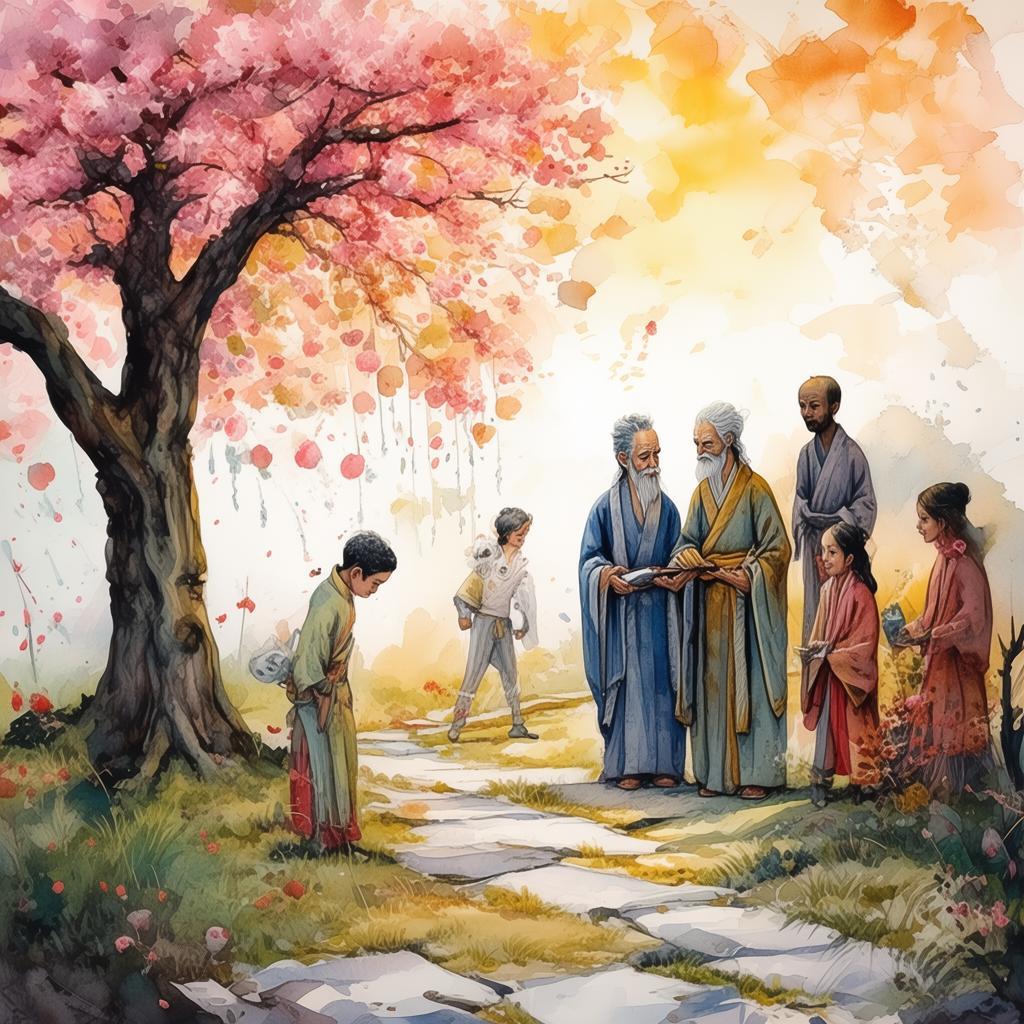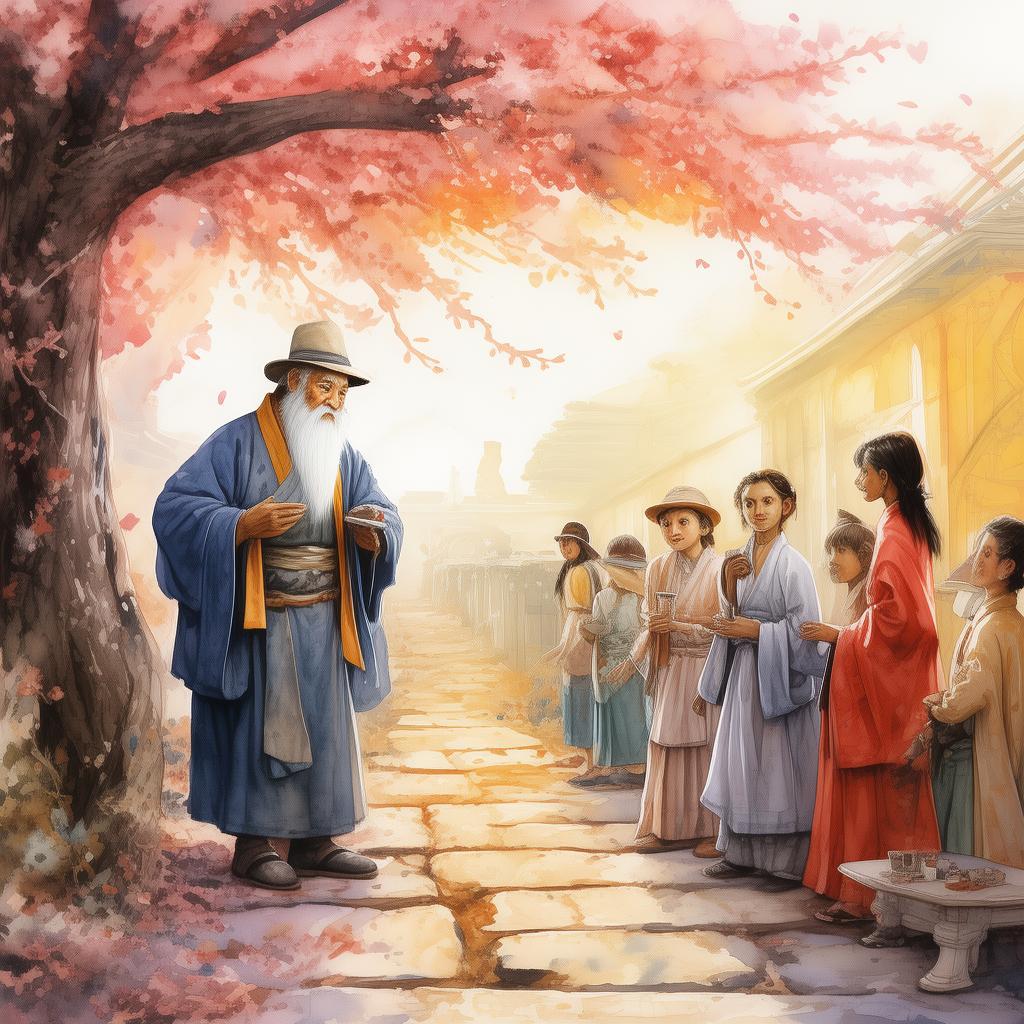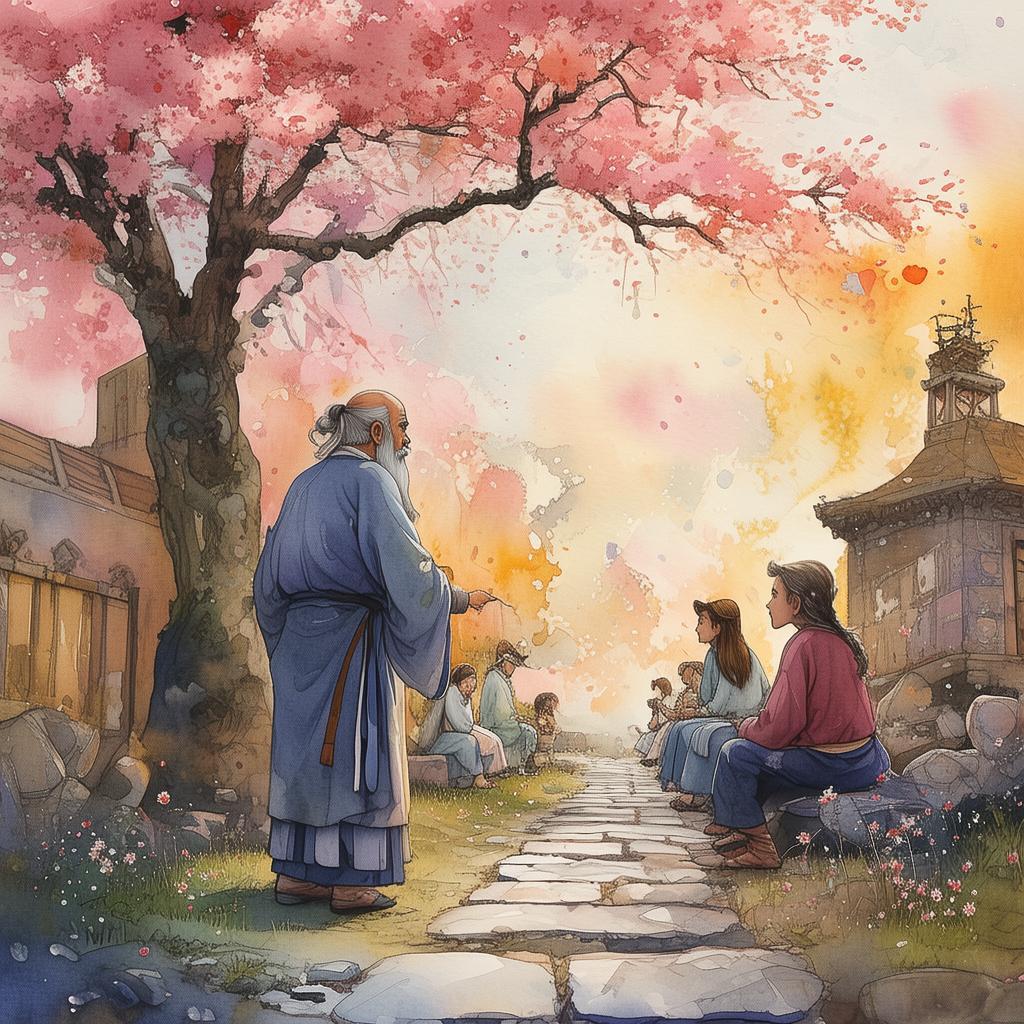The Lute's Symphony: Echoes of the Unseen
In the heart of an ancient Chinese city, where the whispers of history could be heard in every cobblestone, there lived a lute master named Liang. His lute, a relic from a bygone era, had a unique ability: it could play symphonies that seemed to come from the unseen world. Legends spoke of these symphonies as the echoes of the past, carrying secrets that were meant to be uncovered.
One evening, as Liang played his lute under the moonlight, a mysterious melody began to emerge. It was unlike any piece he had ever played or heard. It spoke of love, loss, and the eternal struggle between fate and the human will. As the symphony reached its crescendo, a young girl named Mei appeared, her eyes wide with wonder and fear. She had heard the symphony before, in her childhood home, where her mother used to play it. But her mother was gone, and the symphony had disappeared with her.
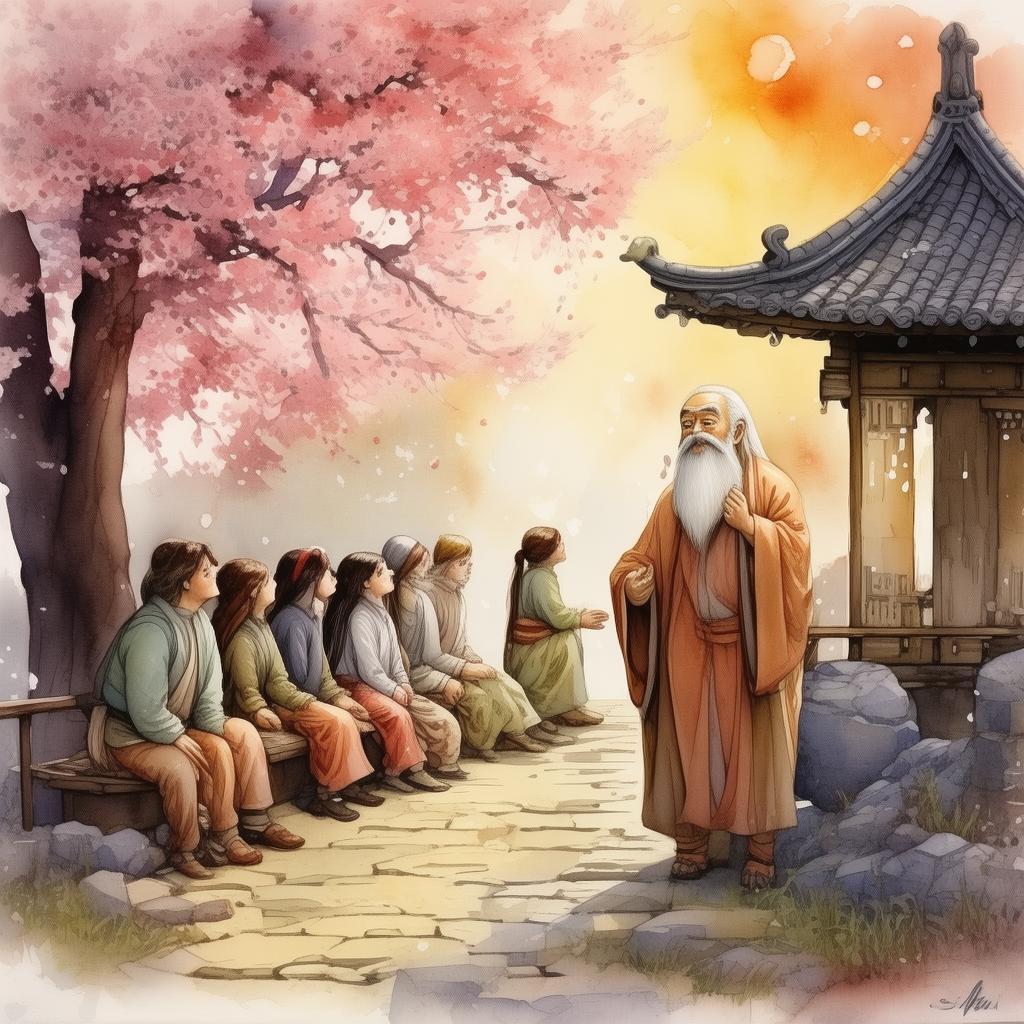
Intrigued, Liang and Mei embarked on a journey to uncover the origins of the symphony. They discovered that it was written by a master lute player named Feng, who had disappeared mysteriously hundreds of years ago. They learned that Feng had been on a quest to compose a symphony that would bridge the gap between the seen and the unseen, hoping to find answers to the questions that haunted him.
As Liang and Mei followed the trail of clues, they encountered a third musician, an old man named Xian, who claimed to be the last pupil of Feng. Xian had been searching for the symphony for his entire life, believing it to be the key to understanding his teacher's true purpose.
The three musicians soon found themselves in the ruins of an ancient temple, where they discovered the final clue: a hidden room filled with ancient scrolls and instruments. In the center of the room was a lute, identical to Liang's, and a scroll containing the last piece of the symphony. As Liang played the piece, the room seemed to come alive, and they were transported to a world beyond their own.
In this world, they met Feng, who revealed the symphony's true purpose: to reveal the secrets of the universe, the interconnectedness of all things, and the power of music to transcend time and space. The symphony was not just a piece of music; it was a key to understanding the unseen, a connection to the eternal truths of the cosmos.
As the symphony played, the musicians realized that they had been chosen to play it for a reason. They were to carry the symphony's message to the world, to spread the understanding that the unseen is not only real but also vital to the human experience.
Liang, Mei, and Xian returned to the present, with the symphony echoing in their hearts. They decided to share their knowledge and their lute, to spread the message of the symphony and to inspire others to seek the unseen.
The city of their journeying was soon filled with music, with people finding solace in the melodies that spoke of ancient secrets and eternal truths. The lute's symphony had become a beacon of hope, a reminder that the unseen world is a part of us, and that music can be a bridge to understanding it.
In the end, Liang, Mei, and Xian understood that their lives had been intertwined with the symphony for a reason. They had been chosen to play a role in a grander story, a story of the unseen that would echo through time and space. And so, they continued to play, to share, and to inspire, knowing that the symphony's legacy would live on in their hearts and in the hearts of those who heard it.
✨ Original Statement ✨
All articles published on this website (including but not limited to text, images, videos, and other content) are original or authorized for reposting and are protected by relevant laws. Without the explicit written permission of this website, no individual or organization may copy, modify, repost, or use the content for commercial purposes.
If you need to quote or cooperate, please contact this site for authorization. We reserve the right to pursue legal responsibility for any unauthorized use.
Hereby declared.
